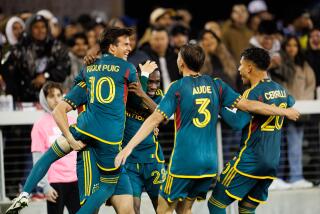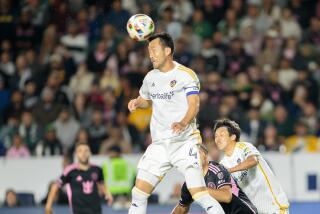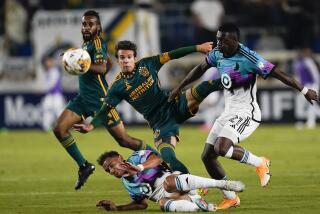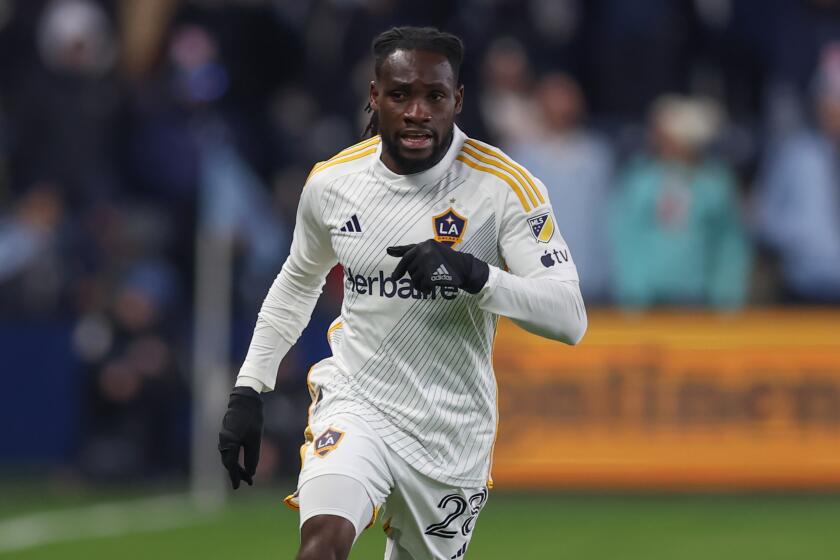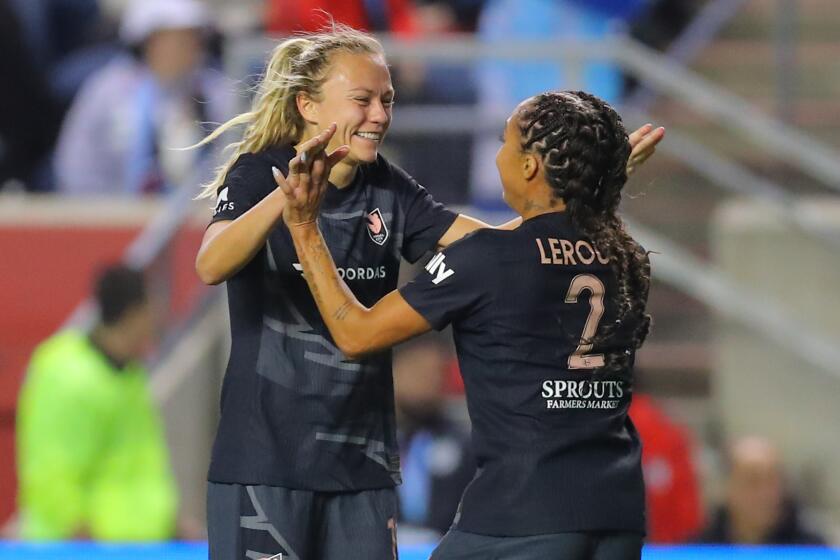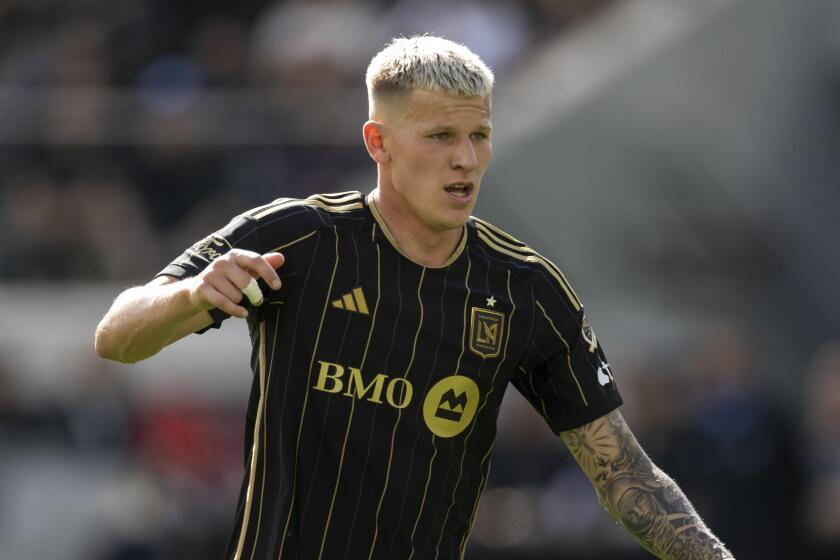Column: Galaxy faces extra challenge in trip to Montreal
When Pete Vagenas was starting in midfield for the Galaxy more than a decade ago, the team’s strategy for dealing with long road trips was to try to make time stand still.
“We were asked to stay on Los Angeles time,” said Vagenas, now the team’s vice president of soccer operations. “But it was very difficult because watches would automatically change.
“I think it caused more chaos than anything.”
It was also the exact opposite of what the team should have been doing, says Pierre Barrieu, who literally wrote the book on the subject.
“What you want to do is adjust as much as possible, as quickly as possible, to the destination time,” said Barrieu, the Galaxy’s director of sports performance and a co-author of volumes on soccer training, performance and travel. “So when you board the plane you’re thinking that it’s not noon, but it’s 3 p.m.
“We try to adjust our watches. We try to adjust our dinner time. As much as we can we try to adjust our bed time. But it’s very challenging.”
Managing the effects of travel, time changes and fatigue on athletes has become an area of increasing emphasis in U.S. professional sports, where transcontinental trips spanning multiple time zones are common. And it’s something the Galaxy will have to deal with this weekend after flying to Montreal for Monday afternoon’s game with the Impact.
Saturday’s flight of five hours, 31 minutes was the team’s longest of the season and a lengthy flight home will follow for a game in Southern California four days later. It’s the team’s tightest turnaround in the first half of the season, one in which the players will spend more than 11 hours traveling approximately 5,000 miles while changing time zones eight times.
The stress that comes with that amount of travel and time change can be especially difficult for players who grew up in Europe, where a long road trip can be a 90-minute train ride.
“It’s hard,” said midfielder Romain Alessandrini, one of seven Galaxy starters who came to MLS from a European league. “But it’s all about mentality. You have to prepare yourself to be a little bit tired.”
But how tired is too tired? A Stanford study on the effects of rest for college basketball players found that increased sleep led to faster sprint times, a nearly 10% improvement in shooting accuracy and quicker reactions. Other researchers reported similar findings. And with the line between victory and defeat growing thinner each day, teams have begun looking at sleep and travel to gain a competitive edge.
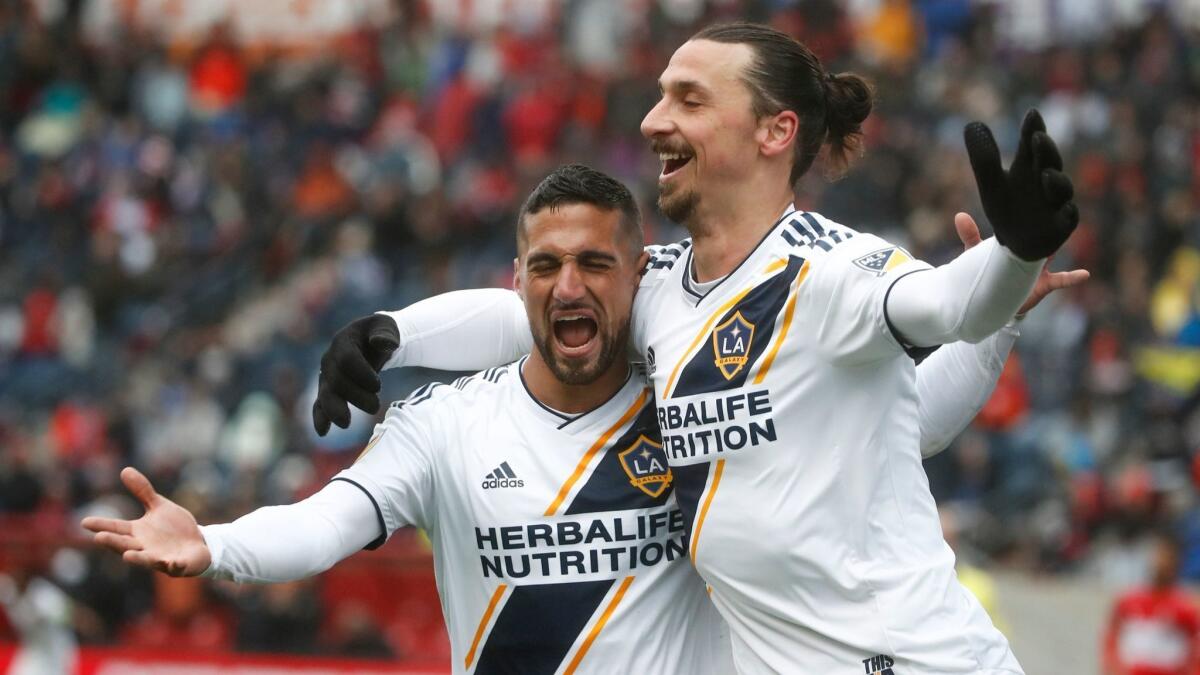
“This is going to be the new thing,” said Juan Carlos Osorio, coach of Mexico’s World Cup team, who plans to take a sleep coach to Russia for this summer’s tournament.
Fatigue Science, a Vancouver-based company, has been leading that revolution, working with more than 50 teams in several sports to plan team schedules and measure the impacts of time change and sleep patterns on performance.
“Having a plan around travel management is critical in this day and age,” said Jeff Zeilstra, a former baseball player and coach who works for Fatigue Science. “Twenty years ago it was a level playing field — teams ate poorly and slept poorly. Now, teams are looking at this and investing in resources to better manage fatigue so it is no longer a level playing field.”
Zeilstra said research shows soccer players don’t sleep well after matches. That fact, combined with crossing four time zones on the way home, could leave some starters needing four to five days to fully recover from the Montreal game. To help shorten that the Galaxy are using one of the four charter flights they are allowed each season, speeding their return and allowing players to sleep at home Monday night and return to training Tuesday.
Plus on the way home, the Galaxy will have the clock in their favor.
“It’s harder for a team playing on the West Coast than it is for a team playing on the East Coast because your body clock takes way more time to adjust to a shorter day than to a longer day,” said Barrieu, who worked for the U.S. national team as well as with clubs in France and England before joining the Galaxy last summer.
“Physically they should be much better coming back. The only difference is that when they come back they have 90 minutes [of fatigue] in their legs. That’s a big factor.”
Follow Kevin Baxter on Twitter @kbaxter11

